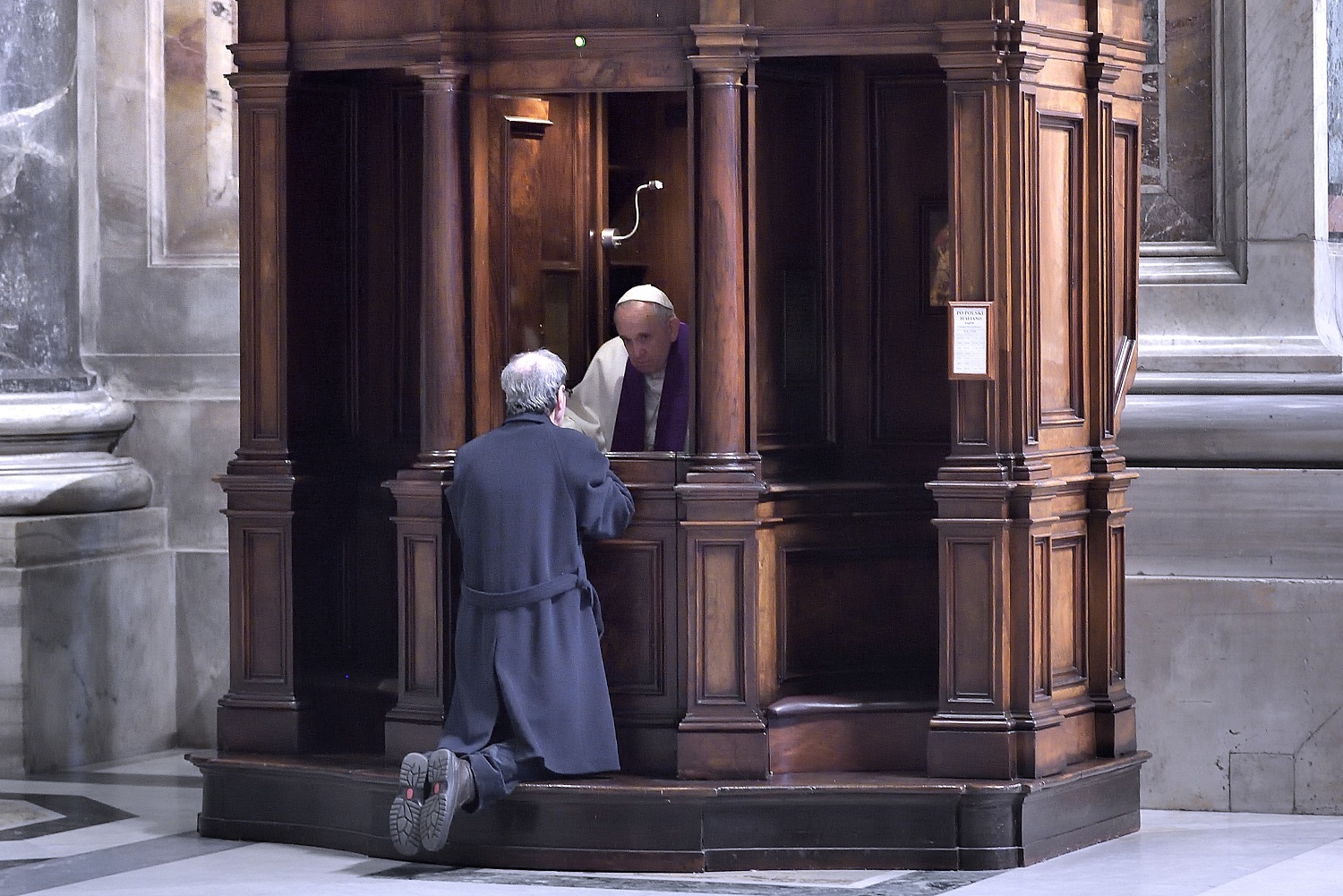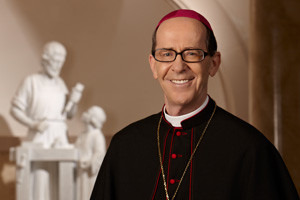


Today I wish to consider the shepherding work of priests, who, in spiritual guidance and in confession, seek to help others to encounter the Amoris Laetitia, the “Joy of Love.” Earlier this year, Pope Francis, who has made Confession a constant theme of his pontificate, wrote in his recent book, “The Name of God is Mercy,” “It is important that I go to Confession, that I sit in front of a priest who embodies Jesus, that I kneel before Mother Church, called to dispense the mercy of Christ. There is objectivity in this gesture of genuflection before the priest; it becomes the vehicle through which grace reaches and heals me.”

As a confessor, this is both an honor and a great responsibility to accompany and enlighten the faithful in the Sacrament of Confession. In doing so, I am “fulfilling the ministry of the Good Shepherd who seeks the lost sheep, of the Good Samaritan who binds up wounds, of the Father who awaits the prodigal son and welcomes him on his return, and of the just and impartial judge whose judgment is both just and merciful” (CCC 1465). Here neither I nor any one of my brother priests are a “master of God’s forgiveness, but its servant” (CCC 1466). Neither are we masters of the commandments that God, in His love, has given us. Indeed, we are also servants of the commandments and can never change or eliminate them. For this reason, we are called to “have a proven knowledge of Christian behavior, experience of human affairs … [to] love the truth, be faithful to the Magisterium of the Church, and lead the penitent with patience toward healing and full maturity” (Ibid.).
EN ESPAÑOL: Acompañar e Iluminar
In Amoris Laetitia, Pope Francis speaks of the need to encourage young people to live authentic love. The confessional is certainly a place for this to happen, especially for those seeking to live the greatness of the calling to be husbands or wives. This is important even to those who are not yet married or who are recently married as the graces of the sacrament appeal to “their capacity for generosity, commitment, love and even heroism … inviting them to take up the challenge of marriage with enthusiasm and courage” (AL 40).
For those who are married in the Church, we pastors are called to encourage families to grow in faith. Here the Holy Father encourages “frequent Confession, spiritual direction and occasional retreats. … also … family prayer during the week, since ‘the family that prays together stays together’” (AL 227). He notes especially “the power of grace experienced in sacramental Reconciliation and in the Eucharist, grace that helps them face the challenges of marriage and the family” (AL 38).
As well, it is in the confessional that the sensitive work of accompaniment is offered to those in difficult situations, whether that be divorce or those in a union subsequent to marriage. In considering the priest’s role in Confession or in regular pastoral guidance of the faithful, he states that “priests have the duty to ‘accompany in helping them to understand their situation according to the teaching of the Church’” (AL 300). This, he states, is done in such a way that promotes reflection and repentance which includes discernment that “guides the faithful to an awareness of their situation before God” (Ibid.).
Amoris Laetitia, as the Holy Father states, does not seek to provide “a new set of general rules, canonical in nature and applicable to all cases” (AL 300), but does include the encouragement to do all that is possible to seek to reconcile all the faithful to the fullness of the sacramental life. Here the Holy Father mentions “the internal forum” as the place of spiritual accompaniment and enlightenment for those seeking to be conformed to God’s love for them. The internal forum is the place of private and confidential consideration with one’s pastor of how to attain full integration into the sacramental life of the Church. This has, at times, been incorrectly used as a place where a private decision about the validity of a marriage could be made. This, as the Church has made clear on a number of occasions, is not the case. A priest is not at liberty to dispense a member of the Church of their vows, especially in such a private way that does not take into consideration the will and understanding of all parties involved. As Jesus our Lord said very clearly “… what God has joined together, no human being must separate.” (Mt. 19:6). These weighty and important decisions are, instead, afforded a due process within the Church in light of Canon Law.
The “internal forum” is also never a place where a priest can dispense of the Lord’s words about marriage: “Whoever divorces his wife and marries another commits adultery against her; and if she divorces her husband and marries another, she commits adultery” (Mk. 10:11f). Here the guidance of the priest is directed toward “the formation of a correct judgment on what hinders the possibility of a fuller participation in the life of the Church and on what steps can foster it and make it grow. …, this discernment can never prescind from the Gospel demands of truth and charity, as proposed by the Church” (AL 300).
To my brother priests, I share the sentiments of Pope Francis who wrote, in his message to the world on the occasion of a Year of Mercy “I will never tire of insisting that confessors be authentic signs of the Father’s mercy” (Misericordiae Vultus 17). And to the faithful, I will never tire of inviting you to the power of God’s mercy and, with the guidance of your shepherds, to experience the
“Joy of Love.”





